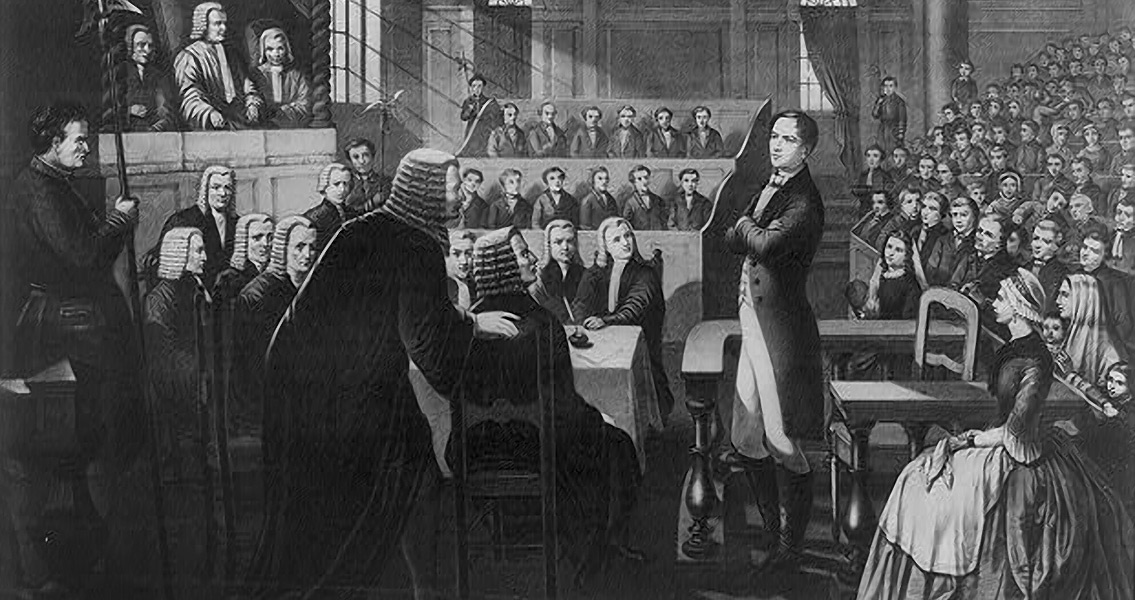<![CDATA[The 1803 Irish Uprising started in Dublin on the 23rd July. Although a relative failure when compared to other Irish rebellions, it lead to the martyrdom of one of Ireland's most famous heroes: Robert Emmet. Emmet, born in 1778, had been a participant in the 1798 Irish Rebellion which attempted to break Ireland from the shadow of British rule. The glorious failure of the 1798 rebellion had a profound impact on the young Emmet. He romanticised the nationalist ideals held by the organisers, as demonstrated by an ode he wrote to them: "And those who were laid at rest Oh! Hallowed be each name; Their memories are forever blest – Consigned to endless fame." Moreover, he witnessed first hand the treatment at the hands of the British endured by the 1798 veterans. Many were forced into exile or imprisoned, and the British government launched a new period of repression over Ireland, embittering Emmet and many others. The refusal of the English King to support the Emancipation of Catholics in 1802 seemed to be further proof that respect for Irish culture would remain elusive. Robert Emmet, and other members of the United Irishmen Society, lived in France for two years from 1800. They worked alongside other Irish exiles in the hope of winning French support for the Irish cause. At a time of tense diplomatic relations between Britain and France, Emmet and other revolutionaries hoped that the French could be persuaded to support an Irish uprising. By 1803 it had become clear that a French invasion of Ireland could not be relied upon, despite the resumption of hostilities between Britain and France. This seemed to lead to a shift in ideology for Emmet. Without guarantees of French support, he decided that the Irish would have to win independence from Britain on their own. Following Emmet's return from France in October 1802, he set about laying the preparations for the uprising. The members of the United Irishmen Society set about slowly building up an arsenal of weapons which could be used on the day of the uprising. Significantly, it appears they managed to keep their preparations a secret from the authorities, even when one of their arsenals exploded in Dublin. Central to the uprising was the nationalist stronghold of Kildare. In the 1798 Rebellion, Kildare had continued to fight long after the rest of Ireland had surrendered. Emmet was relying on this steely determination to the nationalist cause: a key part of his 1803 plan was for rebels from Kildare to march on Dublin to assist in the insurrection there. The basis of Emmet's plan was to occupy crucial strategic points in Dublin, and then wait for the rest of Ireland to revolt in support. A number of key failures however, saw the uprising descend into chaos. Rebels from Wicklow failed to arrive in the city, while the substantial force from Kildare arrived in Dublin and then quickly returned home when they realised Emmet had not secured enough firearms for the uprising. Left with just a hundred men, Emmet still launched an attack on Dublin Castle; the seat of the British government in Ireland, but it was quickly aborted when the extent of the castle's defenses became apparent. As they retreated into the streets of Dublin, Emmet lost control of his troops. The armed rebels launched a violent rampage through the streets of the city, randomly attacking police officers and killing Lord Chief Justice Kilwarden and his nephew. Fighting continued through the night as the British forces battled to restore order in Dublin. Emmet fled into the Irish countryside, but was captured on 25th August. He was convicted of high treason on 19th September, and executed the following day. The 1803 Uprising fell into a disorganised disaster. It failed to achieve its aim, but Emmet's continued status as an Irish hero reveals the important statement of defiance his rebellion played in the years of Ireland's occupation by Britain. ]]>
Robert Emmet Leads the 1803 Irish Uprising
